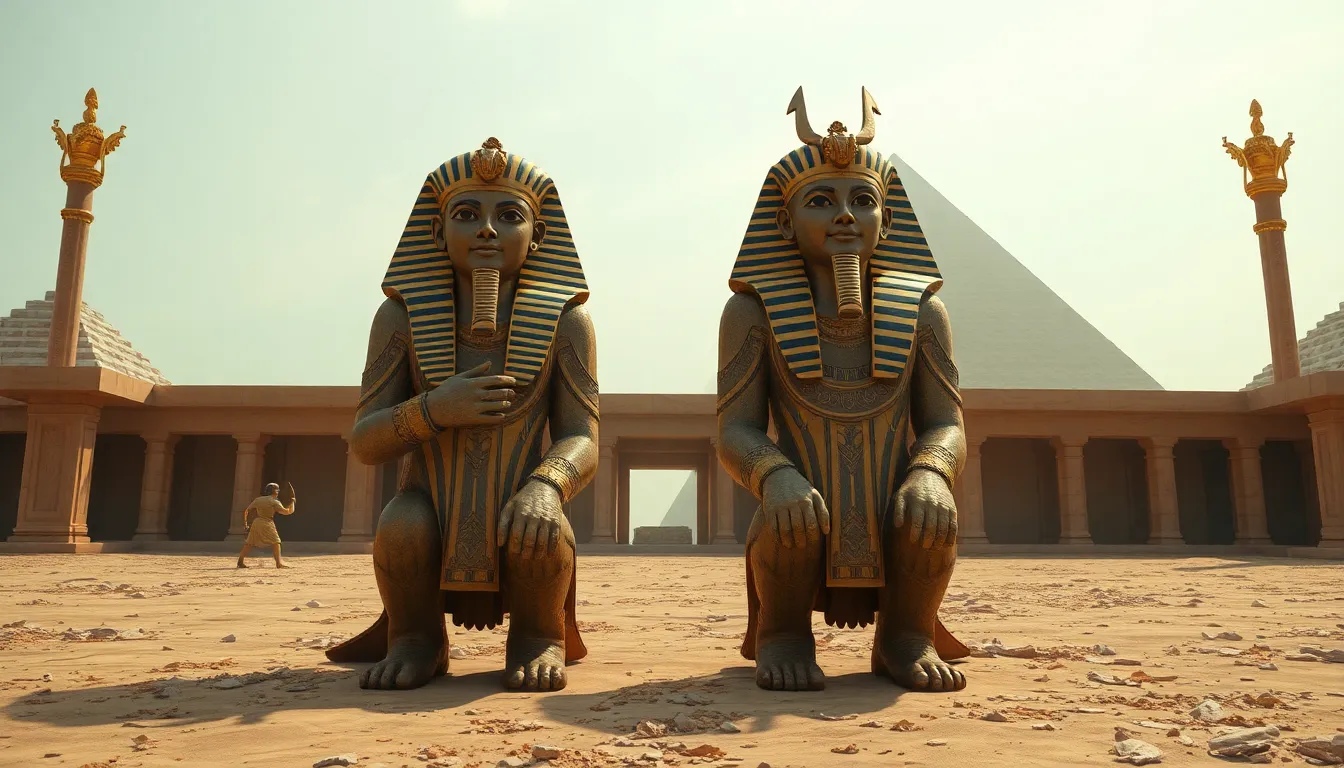The Myths of Pharaoh Ramses II’s Family Life
I. Introduction
Ramses II, also known as Ramses the Great, is one of the most celebrated pharaohs of ancient Egypt. His reign, which lasted from 1279 to 1213 BCE, is marked by monumental construction projects, military victories, and a long-lasting peace treaty with the Hittites. However, alongside his impressive achievements, numerous myths have emerged surrounding his family life. This article aims to debunk these myths and provide a clearer understanding of Ramses II’s familial relationships.
II. The Historical Context of Ramses II’s Reign
Ramses II ascended to the throne during the Nineteenth Dynasty of Egypt. His reign is often considered the apex of Egyptian civilization, characterized by political stability and cultural flourishing.
A. Brief Timeline of Ramses II’s Rule
- 1279 BCE: Ramses II becomes pharaoh.
- 1275 BCE: The Battle of Kadesh against the Hittites.
- 1258 BCE: Signing of the first known peace treaty with the Hittites.
- 1250 BCE: Construction of the temples at Abu Simbel.
- 1213 BCE: Ramses II’s death.
B. The Political and Social Landscape of Ancient Egypt During His Reign
During Ramses II’s reign, ancient Egypt was at the height of its power. The economy thrived, trade routes expanded, and art and literature flourished. This period also saw significant military campaigns that expanded Egypt’s territory, solidifying Ramses II’s reputation as a warrior king.
III. Ramses II’s Marriages: Fact vs. Fiction
A. The Myth of a Singular “Great Wife”
Many historians and enthusiasts often refer to Nefertari, Ramses II’s first and most famous wife, as his only great wife. This portrayal suggests a romanticized view of their relationship, overshadowing the reality of Ramses’ multiple marriages.
B. The Reality of Multiple Marriages and Alliances
In truth, Ramses II had numerous wives and concubines, which was a common practice among pharaohs to strengthen political alliances. His marriages included:
- Nefertari: His beloved first wife, known for her beauty and intelligence.
- Isetnofret: Another principal wife, who bore him several children.
- Many other lesser wives and concubines: These unions were often politically motivated.
IV. The Role of Women in Ramses II’s Family
A. Examination of the Status and Influence of Royal Women
Women in ancient Egypt, particularly royal women, held significant sway within the family and society. Queens like Nefertari were not just consorts; they played vital roles in religious and political affairs.
B. Misconceptions About Their Roles in Governance and Society
Despite their influence, royal women were often relegated to the background in historical narratives. They were instrumental in maintaining the dynasty and were often depicted in art and inscriptions as powerful figures in their own right.
V. Ramses II’s Children: The True Number and Their Fates
A. Myths About the Number of Children He Fathered
It is commonly believed that Ramses II fathered an enormous number of children, often cited as over a hundred. While he did have many offspring, the exact number is debated among scholars.
B. The Lives and Legacies of His Children: Successes and Failures
Ramses II had many children, including:
- Amunherkhepeshef: His firstborn son, who was appointed as a high priest.
- Khaemwaset: Renowned for his intellect and contributions to archaeology.
- Merneptah: Succeeded Ramses II as pharaoh.
Many of Ramses II’s children faced challenges, including early deaths and political strife, highlighting the complexities of royal life.
VI. The Impact of Ramses II’s Family on Egyptian Politics
A. How Family Ties Influenced Political Decisions
Ramses II’s familial connections were crucial in shaping political alliances. His marriages often served to secure peace treaties and strengthen Egypt’s international standing.
B. The Role of Dynastic Marriages in Maintaining Power
Dynastic marriages were a strategic tool employed by Ramses II. By marrying into powerful families, he ensured loyalty and stability within Egypt and its neighboring territories.
VII. Ramses II’s Legacy: The Myths Surrounding His Family Life
A. How Myths About His Family Contribute to His Overall Legacy
The myths surrounding Ramses II’s family life have significantly shaped his legacy. The romanticized view of his relationships often overshadows the political realities of his reign.
B. The Impact of These Myths on Modern Perceptions of Ancient Egypt
Modern portrayals of Ramses II often emphasize his grandiose image as a loving husband and father, which can obscure the more complex, and sometimes harsh, realities of ancient Egyptian life.
VIII. Conclusion
In conclusion, the myths surrounding Pharaoh Ramses II’s family life are numerous and varied. By debunking these myths, we gain a clearer perspective on his relationships, the roles of women, and the impact of his family on Egyptian politics. Understanding the true nature of Ramses II’s family life is essential for an accurate interpretation of his legacy and the history of ancient Egypt.




